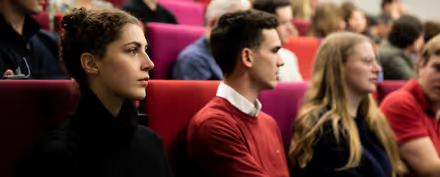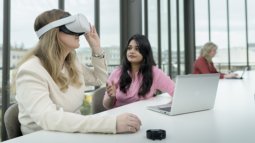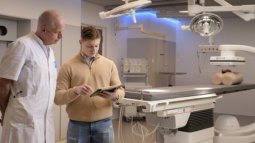Use an innovative approach to improve the quality of healthcare and public health, with a focus on healthcare governance, organisation and technology.
Staffing shortages, rising healthcare costs, technological innovations, climate change, the increasing prevalence of diseases like obesity and diabetes, and an ageing population pushing the demand for healthcare services: the healthcare sector is facing many challenges all at once. There is a great need for health scientists with an understanding of technology and the ability to make sharp, data-driven analyses to find solutions to these and many more challenges. Do you want to improve the quality of healthcare as well as public health, and are you eager to determine how healthcare will be organised in the future? Then the Master’s in Health Sciences at the University of Twente may be just the right choice for you!
In this Master’s, you will focus on healthcare policy and organisation, with attention to the role of technology and innovation in healthcare. You will learn to take on an analytical, data-driven, multiperspective approach, dealing with a wide variety of challenges within the broad context of the healthcare sector. For example, can you use data to predict healthcare needs and adjust policies accordingly? How can you ensure better cooperation between different healthcare organisations? How do you involve citizens and/or patients in decision-making processes? How do you keep healthcare affordable? And what does it take to make the healthcare industry more sustainable? These are just some of the many questions you could deal with.
Choose a specialisation
You can tailor your Master’s in Health Sciences to your own interests and ambitions. Are you eager to improve the quality of public healthcare services at a societal level? Or do you want to focus on process optimisation and quality improvement within healthcare organisations? Or what about discovering the role of eHealth technologies in the future of our healthcare system? You will build your own expertise within one of the specialisations.
Your choice determines (part of) the courses you will follow and the type of research you will engage in during your master’s thesis. You can choose from two different specialisations:
Working on real-life projects in the techmed centre
This Master’s is closely associated with UT’s renowned TechMed Centre, a leading institute that aims to improve healthcare through personalised technology, and UT’s Centre for eHealth and Wellbeing Research, a leading research centre for personalised healthcare. As a Health Sciences student, you have the opportunity to work with outstanding scientists and other experts from the healthcare sector. Moreover, your research, analyses and outcomes are always focused on real-world problems. In other words, you will work on solutions that will be actually applied in hospitals and health centres. It is a great environment for network building and gaining hands-on experience for your future career!
Career perspectives
The growing complexity of today’s fast-changing healthcare sector has raised the demand for skilled health science professionals with an innovative, analytical and data-driven approach – competencies you will definitely have as a graduate of this Master’s, whichever specialisation you choose. You will be able to apply your expertise in a wide range of healthcare settings, whether you want to focus on process optimisation, policy development or eHealth implementation. Graduates find a job soon, on average within two months after graduation.
job opportunities for health scientists
As a graduate, you can pursue a career in all areas of healthcare, from hospitals, health centres or home care institutions to insurance companies, government institutions, consultancy agencies or eHealth start-ups. Many students went on to fulfil the role of consultant in various organisations, whereas others work, for example, as policy advisers at municipalities, quality officers, operations managers or tactical buyers at hospitals, and project managers at eHealth development or healthcare analytics companies. You could also opt for a career as a researcher – and continue with a PhD programme at the University of Twente, for example.



